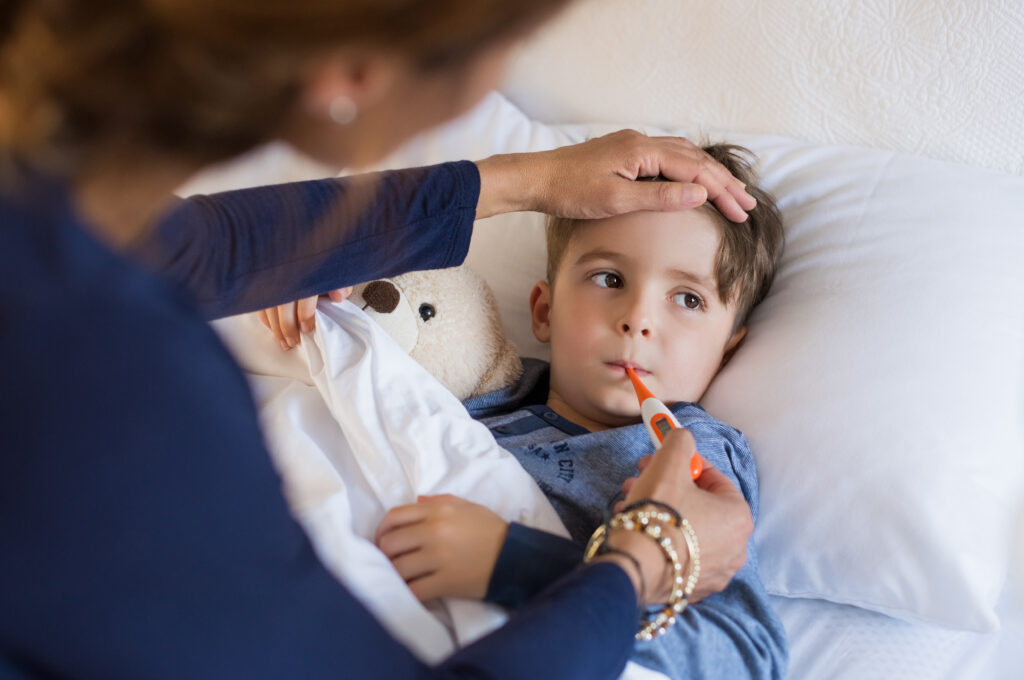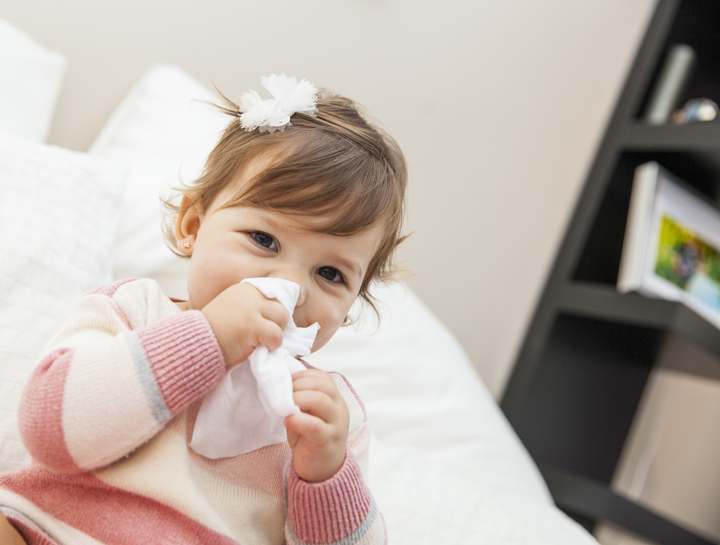
Sore throats are common at any age. Although they can be upsetting for children, they are usually not a cause for concern and normally get better by themselves within a few days.
Most sore throats in kids and babies are linked to a viral infection – such as a cold or the flu – which is easily spread among children (and adults) either at home, or when they are at school or in childcare. These types of viral infections quickly spread by infected droplets from the nose and mouth through coughing and sneezing.
Colds are very common among young children, as their immune systems are still developing. It can sometimes feel like your child is always getting sick. But the good news is most children will catch fewer colds as they get older.
Sore throats can also be caused by bacterial infections, or other things such as allergies and air pollution.
Signs of a Sore Throat & Other Cold Symptoms

What are the signs to look out for if your child has a sore throat? The obvious one is, of course, that they are complaining of a pain in their throat – especially when swallowing.
When your child has a sore throat they may also:
- Complain of a scratchy throat
- Have redness in the back of their mouth
- Have bad breath
- Have swollen neck glands
- Have a fever
A sore throat may be one of the first things you notice when your child is starting to get a cold – with their throat becoming dry and sore a few days before other symptoms are noticed.
Other cold symptoms that are common in children include:
- A blocked or runny nose
- Coughing or sneezing
- Being tired
Fever, vomiting and diarrhoea are less commonly seen with colds and sore throats but can occur with viral infections. These symptoms may also indicate something more serious is going on. If you’re concerned about any symptoms your child has or they are distressing your child, you should talk to your doctor or other healthcare professional.
How to Provide Relief

Sore throats can make your child feel sick and miserable, but there are things you can do to help soothe a sore throat and make them feel more comfortable.
Depending on the age of your child, you could:
- Let them sip warm liquids
- Let them suck on an ice-block or icy-pole
- Older children may also find sucking on a hard lolly helps – but do not give these to young children as they are a choking hazard.
Giving your child a simple (age-appropriate) pain-reliving medication such as Dymadon for Kids or Dymadon for Babies helps relieve painful cold and flu symptoms, such as a sore throat.
It’s also important to make sure your child rests and drinks plenty of fluids when they don’t feel well.
Find out more about fever in kids and babies
When to Seek Help
Most sore throats are usually only mild and clear up without needing special treatment – but it is important to monitor your child’s health in case their condition gets worse.
If the sore throat lasts for more than a few days, your child has a fever and is feeling unwell – it’s time to see your doctor to get things checked out.
You need to get medical help if your child has a sore throat and also:
- Has difficulty swallowing or breathing
- Can’t open their mouth fully
- Has a stiff or swollen neck.
ALWAYS READ THE LABEL AND FOLLOW THE DIRECTIONS FOR USE. INCORRECT USE COULD BE HARMFUL.


